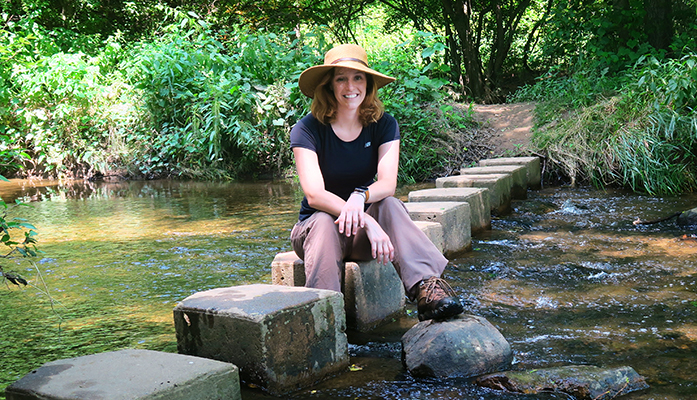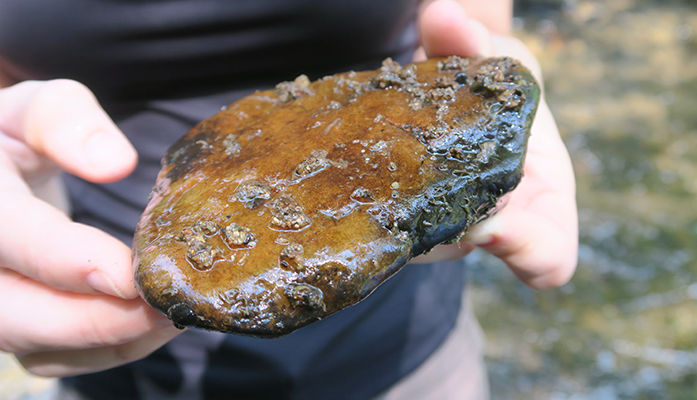
One Penn alumna tackles local preservation challenges
“I got my dream job because of the Master of Environmental Studies (MES) program,” beams Lauren McGrath (MES ’16), a freshwater ecologist at the Willistown Conservation Trust in Newtown Square, PA. “I thought it would happen in 20 years, and it happened right after I got my degree, because of the connections I made at Penn.”
In her role, Lauren monitors the plant and animal life along the streams in Willistown to track the overall health of the habitat. Her primary research interest is macroinvertebrates—juvenile aquatic insects that live in streams before changing into their adult form. She explains, “They’re like a canary in a coal mine. These species are very sensitive to change, and they can tell you a lot about the condition of an ecosystem.”
According to Lauren, freshwater ecology is still a young science, so she has an opportunity to make discoveries about resilience and sustainability for the many industries that use this natural resource. She notes, “There are numerous types of discharges that go into freshwater streams—from sewage treatment plants to farms and paper manufacturers. Each industry presents unique challenges to freshwater ecosystems, and through my research I hope to be able to assist in improving these discharges.”
Currently, the greatest threat to freshwater environments is human development, particularly the removal of trees and plant life. Lauren explains, “Impervious surfaces like parking lots and shopping centers create a lot of washouts after every storm. You get a lot of fast, dirty water going into a stream and causing a lot of damage.” She adds, “Plant life helps slow down the rain flow, and it filters out oil and nutrients that are bad for freshwater ecosystems. Trees also provide shade and cold water is much better, especially in this part of the world, for many fish and macroinvertebrates to flourish.”

Thankfully there is plenty we can do to help remedy the issue. Lauren recommends reducing the use of pesticides and growing native plant species in our backyards and along our rivers, lakes and streams.
An outdoors person at heart, Lauren’s experience at Penn opened her eyes to how urban sustainability is linked to the rural heartland. “Philadelphia is the poster child for green space initiatives and water quality work. I had no idea how much good work was being done here before coming to Penn.”
While earning her degree, Lauren took courses across the University and from a variety of instructors with a wealth of experiences and knowledge. “Having that exposure was instrumental in helping me figure out what I wanted to do,” she continues, “I learned different aspects of land and water management as well as policy writing—and those help me in my day-to-day work as much as the field study courses.”
For her capstone, Lauren observed the macroinvertebrate population in a newly established preserve at Runnymede in Chester County. She worked with the Stroud Water Research Center to establish baseline health for the area. She notes, “They are still using my work and will go back every two years to see the impact of plantings and changes of land management and how it affects the waterway.”
Looking back on her experiences at Penn, Lauren reflects, “The most valuable thing I learned in the MES program was how to network and cultivate a community of like-minded people I want to work with.”





